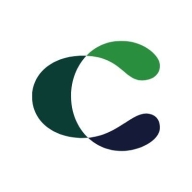

Find out in this report how the two Static Application Security Testing (SAST) solutions compare in terms of features, pricing, service and support, easy of deployment, and ROI.
| Product | Market Share (%) |
|---|---|
| Contrast Security Assess | 0.6% |
| SonarQube Server (formerly SonarQube) | 20.8% |
| Checkmarx One | 10.3% |
| Other | 68.3% |
| Product | Market Share (%) |
|---|---|
| OpenText Dynamic Application Security Testing | 11.3% |
| Veracode | 23.2% |
| Checkmarx One | 19.7% |
| Other | 45.8% |


| Company Size | Count |
|---|---|
| Small Business | 2 |
| Midsize Enterprise | 3 |
| Large Enterprise | 6 |
| Company Size | Count |
|---|---|
| Small Business | 7 |
| Midsize Enterprise | 1 |
| Large Enterprise | 15 |
Contrast Security is the world’s leading provider of security technology that enables software applications to protect themselves against cyberattacks, heralding the new era of self-protecting software. Contrast's patented deep security instrumentation is the breakthrough technology that enables highly accurate assessment and always-on protection of an entire application portfolio, without disruptive scanning or expensive security experts. Only Contrast has sensors that work actively inside applications to uncover vulnerabilities, prevent data breaches, and secure the entire enterprise from development, to operations, to production.
OpenText Dynamic Application Security Testing offers robust scalability, ease of use, and high accuracy in scanning, making it a valuable tool for enterprises.
This security testing platform is known for its centralized dashboard, guided scans, and comprehensive reporting. It integrates seamlessly with tools like Fortify code scanner and supports extensive vulnerability detection and analysis, enhancing efficiency in security management. Despite its strengths, users suggest improvements in cloud integration, cost-effectiveness, and installation processes. Faster scans, reduced false positives, and improved mobile testing features are also desired.
What are the key features of OpenText Dynamic Application Security Testing?In industries like BFSI, OpenText Dynamic Application Security Testing is employed for performance network application testing, dynamic and static application security testing, and code checks. Security and QA teams use it in development processes to ensure application security prior to release, proving integral in both enterprise and testing environments.
We monitor all Static Application Security Testing (SAST) reviews to prevent fraudulent reviews and keep review quality high. We do not post reviews by company employees or direct competitors. We validate each review for authenticity via cross-reference with LinkedIn, and personal follow-up with the reviewer when necessary.